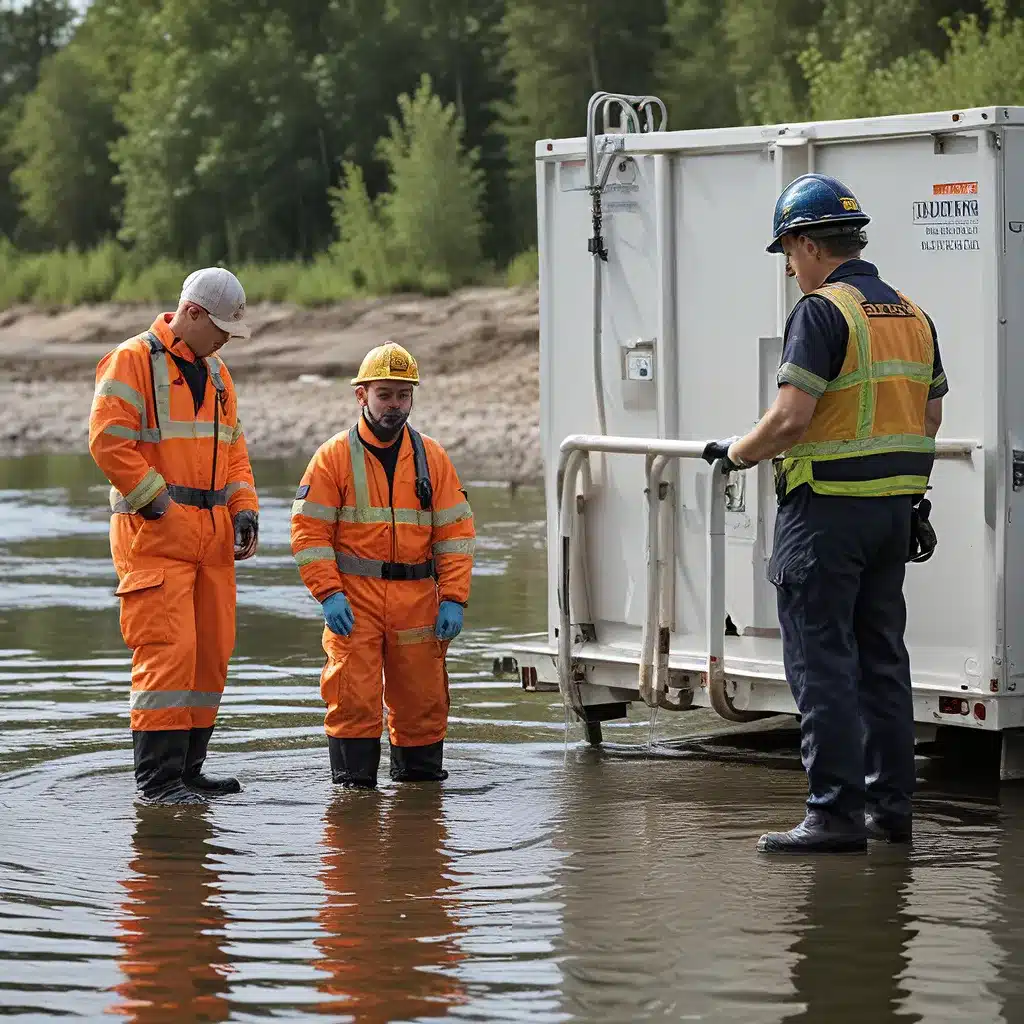
When disaster strikes, whether it’s a natural calamity or a man-made crisis, the first responders who rush to the scene are often the unsung heroes. But among this elite group, there’s a unique breed of lifesavers that you may not have heard of – the water treatment professionals.
Unsung Heroes of Emergency Response
Picture this: a massive earthquake rocks a city, toppling buildings and infrastructure. Amidst the chaos, brave firefighters and paramedics work tirelessly to rescue trapped victims. But unbeknownst to many, a critical part of the emergency response is happening behind the scenes – the water treatment teams are racing to ensure clean, safe water is available for the rescue efforts and the displaced community.
As we’ve learned from past disasters, clean water is an absolute necessity in emergency situations. Without a reliable supply, the risk of waterborne illnesses skyrockets, compounding the already dire circumstances. That’s where the unsung heroes of water treatment come in, deploying their specialized skills and equipment to safeguard this precious resource.
Mobilizing for Action
When the alarm sounds, these water treatment professionals don’t hesitate. They spring into action, mobilizing their teams and equipment to the affected areas. Their vehicles, often specially outfitted for emergency response, carry an arsenal of tools and technology – from portable water purification systems to mobile water treatment plants.
Much like the diverse fleet of fire engines and rescue vehicles that the Los Angeles Fire Department maintains, these water treatment rigs are designed to tackle a wide range of challenges. Some are equipped with high-capacity pumps and hoses to quickly distribute water, while others house advanced filtration systems capable of transforming contaminated sources into potable supplies.
Facing the Unknown
But it’s not just the equipment that sets these water treatment professionals apart. It’s their unwavering spirit and the ability to thrive in the face of the unknown. When disaster strikes, they are often the first to arrive on the scene, surveying the damage and quickly devising a plan of action.
“We never know what we’re going to encounter,” explains Sarah, a veteran water treatment specialist. “One day it might be a flooded town, the next a chemical spill. But that’s what makes this job so thrilling – the challenge of adapting to each unique situation.”
Safeguarding the Water Supply
Sarah and her team are responsible for ensuring that the water supply remains safe and accessible, even in the most dire circumstances. They work tirelessly to assess the damage, identify potential contamination sources, and implement rapid water treatment solutions.
“It’s not just about restoring the water system,” Sarah adds. “It’s about protecting the health and well-being of the entire community. Clean water is literally the lifeline in an emergency, and we take that responsibility very seriously.”
Unsung Rescuers
While firefighters and paramedics are often the first to receive praise for their heroic actions, the water treatment professionals quietly toil away in the background, ensuring that the essential resource of clean water is available for the rescue efforts and displaced residents.
Their contributions are just as vital as those of their more visible counterparts, but they often go unnoticed. These dedicated individuals are the unsung heroes of emergency response, working tirelessly to safeguard the very liquid that sustains life.
Teamwork and Coordination
Of course, the water treatment professionals don’t work alone. They are part of a broader network of emergency responders, each with their own specialized skills and resources. The key to their success lies in seamless coordination and collaboration.
“We’re all in this together,” Sarah explains. “Whether it’s the firefighters, the medical teams, or the disaster relief organizations, we rely on each other to get the job done. It’s a well-oiled machine, and we’re proud to be a critical cog in the wheel.”
Adapting to the Challenge
The challenges faced by water treatment professionals in emergency situations are constantly evolving. As natural disasters become more frequent and severe, and as man-made crises continue to threaten our communities, these unsung heroes must adapt and innovate to stay ahead of the curve.
“We’re always learning, always improving,” Sarah says. “Whether it’s investing in the latest technology or honing our emergency response protocols, we’re committed to being the best prepared and most effective water treatment team we can be.”
Dedication and Passion
But what drives these water treatment professionals to put their lives on the line, day in and day out? It’s a combination of dedication, passion, and a deep sense of purpose.
“We’re not just water treatment experts – we’re lifesavers,” Sarah says with a proud smile. “When disaster strikes, we have the power to literally save lives by ensuring clean, safe water. That’s what keeps us going, even in the toughest situations.”
A Lifeline in Times of Crisis
As the world continues to face unprecedented challenges, the role of water treatment professionals in emergency response is more crucial than ever. They are the unsung heroes, the liquid lifesavers who work tirelessly to keep communities afloat in the darkest of times.
So, the next time you hear the sirens of an emergency response, remember that among the brave first responders, there’s a team of water treatment professionals fighting to keep the water flowing and the people safe. They may not be the ones in the spotlight, but their impact is undeniable – and their contributions are invaluable.
To learn more about the essential work of Inland Waters, a leading provider of water treatment and environmental services, visit our website today.


